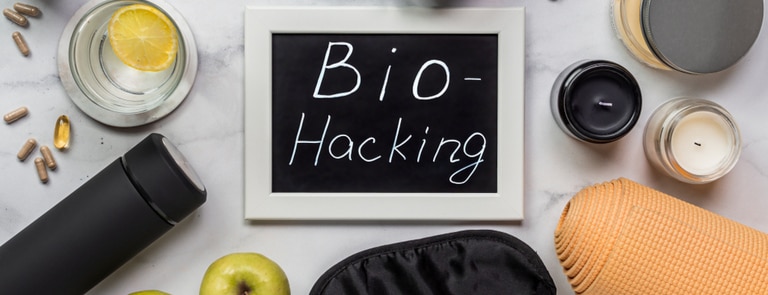15% off £25 or 20% off £35
Is it safe to reuse plastic water bottles?

Did you know, refilling an empty plastic bottle with water isn’t unsafe?
Although there have been many concerns that PET plastic bottles release harmful chemicals into the water, studies have found little evidence for this claim.
The main areas of concern relate to bacteria growing in damp bottles or cracked plastic, so it is recommended to clean and dry between uses.
Even so, switching to a reusable water bottle or shaker can give you a bottle that’s more convenient, better for the environment, and has handy features like secret compartments for carrying snacks and protein supplements.
Here’s everything you need to know, plus 9 of our favourite alternatives to reusing plastic water bottles.
Is it OK to reuse water bottles?
Contrary to popular belief, drinking bottled water isn’t as bad as you may have been led to believe.
Concerns around disposable water bottles usually come from that fact that they are made from polyethylene terephthalate (PET), which people believed would gradually release chemicals into your bottle of water.
However, there is no evidence that the reuse of plastic water bottles increases your risk of drinking chemicals from PET plastic.
Why is it bad to reuse water bottles?
Refilling plastic bottles is often believed to be bad because of a substance known as “antimony,” a metal used during plastic manufacturing that may be carcinogenic.
The concern is that this antimony will begin to leak into your water when reusing plastic bottles over time.
Fortunately, this may not be the case! A 2021 review of studies discovered that when storing bottled water in PET bottles for three years at room temperature, the amount of the chemical in the water was only 1% of the tolerable daily intake1.
Can reusing water bottles make you sick?
Drinking from plastic bottles should not make you sick, as long as you regularly wash between uses. Bacteria loves damp places, so leaving a damp bottle in a warm area for a period of time can cause bacteria to grow.
Bacteria may come from your hands or mouth, especially around the lid and mouth of the bottle.
It’s often time for a deep clean or a new bottle if you find yourself thinking, “why does my water bottle smell?”
Over time, reuse of plastic bottles may also lead to small cracks in the plastic that can be hard to spot. Bacteria can form in these cracks and may become difficult to keep clean.
How long can you reuse an old water bottle?
In theory, you can reuse an old water bottle for as long as you want, as long as water bottle cleanliness is something you’re keeping on top of. If you don’t notice any cracks in the plastic and are keeping it clean, there’s no danger in reusing plastic water bottles.
Summary
- PET plastic bottle reuse has not been linked to any negative side effects.
- There is no evidence that plastic water bottles release harmful amount of chemicals into your drinking water.
- When reusing plastic water bottles, you should clean bottles between uses to avoid bacteria.
- There is no evidence that you can’t keep reusing a plastic water bottle indefinitely, as long as no cracks appear in the plastic and you’re keeping it c
3 benefits of switching to a reusable water bottle
The 3 benefits of switching to a reusable water bottle are...
-
Economical alternative
With a range of bottles made from recycled materials, switching to a reusable water bottle helps you to reduce your impact on the world around you.
-
No more chemical concerns
By switching to bottles made of durable plastic, stainless steel, glass, or any other material that isn’t PET plastic, you can feel safe in the knowledge that the only things going into your drinking water are natural flavourings and protein powders.
-
Motivates you to drink more water
Drinking enough water throughout the day is great for your body and anything that helps motivate you can only be a good thing. Nothing says, “let’s drink more water” quite like a new water bottle.
How do I keep my reusable water bottle clean?
- Clean between uses: reusable water bottles should be cleaned and dried between uses. Fortunately, reusable water bottles like those in our list are often easier to clean, can be washed by hand with hot water and soap, and some are even dishwasher safe.
How to sanitise your water bottle
- Mix 1 teaspoon of bleach and 1 teaspoon of baking soda with approx. 1 litre of water.
- Put this mixture into your bottle and allow it to sit overnight.
- Thoroughly rinse the bottle and let it completely dry.
- Refill your water bottle and you’re ready to go!
Summary
- Switching to a reusable water bottle is better for the world, better for your peace of mind, and motivates you to drink more water.
- Cleaning your bottle between uses will help to keep it bacteria free.
- If you start to notice any sort of smell or bacteria, sanitise your bottle with bleach, baking soda, and water.
Is it safe to reuse plastic water bottles? Summary
As it turns out, it is safe to reuse plastic water bottles if you keep them clean and don’t notice any cracks in the plastic.
However, when you have so many better alternatives that give you BPA-free water bottles with a variety of other uses, styles, and colours, why wouldn’t you switch to something new?


.png)








